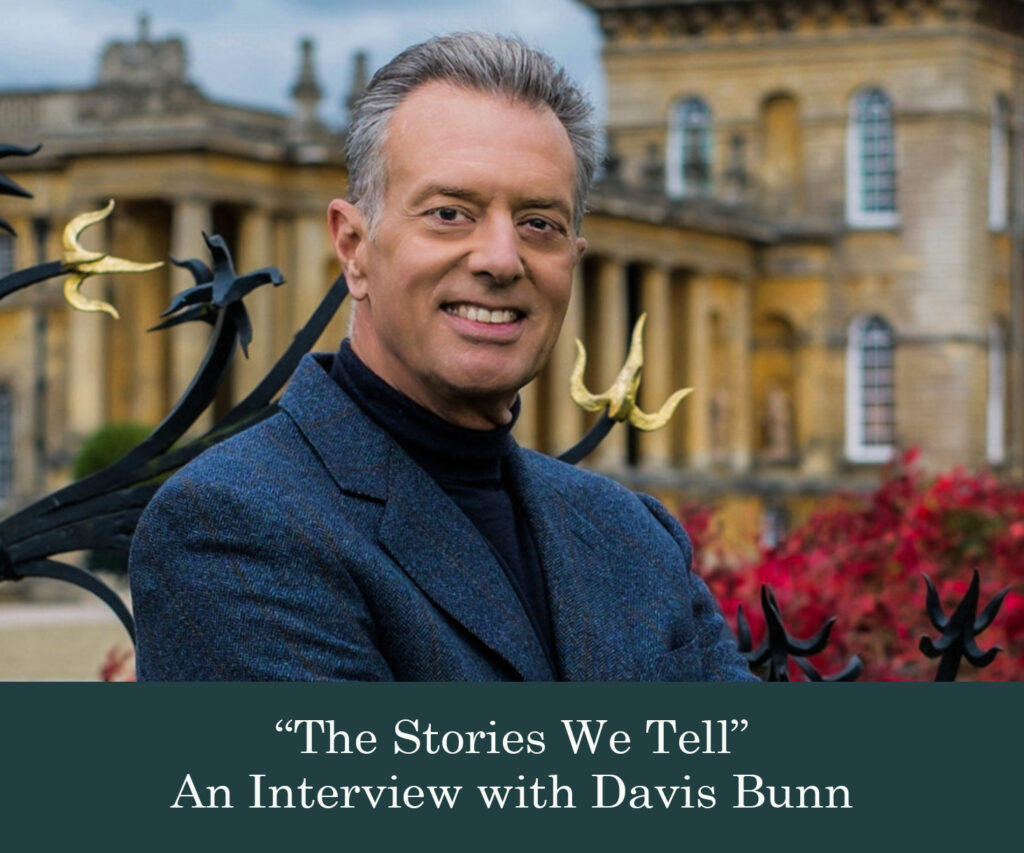During our C.S. Lewis College webinar on Saturday, August 15, 2020, we interviewed best-selling author Davis Bunn on his writing, his life, and his thoughts on storytelling.
Due to time constraints, we weren’t able to get to every question, so Davis generously offered to answer the remaining questions through email. We’re pleased to post them below.
We’ll also be posting the video in the next few weeks. Visit www.cslewiscollege.org/webinar for details on future webinars. Visit our YouTube channel to watch past webinars and conference videos.
Do you feel your calling is to spread Christian values to the secular world?
For myself, the writing with its sense of calling and my faith are so intertwined it is hard to separate them out. But that was not actually your question, was it. You asked if I felt we should ‘spread Christian values’. And that to my mind needs to be broken down into some core issues.
First, if we are believers, don’t we share the core values in simply living our lives? If that is the case, then your question most likely is, should I be doing this OVERTLY.
I have written books both within the evangelical community and without. And working outside the safety zone of church and faith has taught me a lot about living within a community that considers the whole concept of Christian faith to be an opponent. To me, the overt message does not work, particularly in dealing with the world of entertainment.
If we put out an overt message about faith-based values, and it is in opposition to what a non-believer wants to have as their evening entertainment, they simply turn the channel.
So the question then becomes one of two: First, how do we create a story structure that is so compelling that even if they disagree with the compass heading, they keep watching? Or, how do we embed a moral, or value, or message, into a story and have it remain somewhat hidden? The answer to that, I find, is by creating either a question that is not answered, or having the hero make a realization in the climax that points in this direction.
One final thought: The whole issue of faith-based values has sadly become tied up in political direction, especially within the evangelical community. Which I find truly sad. This runs the risk of demonizing strong believers who stand on the other side of the political divide. With respect, I do not think this definition of ‘Christian values’ should be used in today’s hyper-divided world.
What is your favorite book by yourself and by another author?
Janette was asked that during our first-ever joint interview. She said, All my children are favorites at one point in time or another. And it’s the same for what I read, and what I write. I really like that a lot.
I have just completed the first draft of a new story, book five in the Miramar Bay series, entitled The Cottage on Lighthouse Lane. It is quite possibly the best romantic drama I’ve ever written.
Currently I am reading the autobiography of Madeline Albright, former US representative to the UN and Secretary of State. Hers is an amazing story.
Are you an introvert or extrovert? Writing is solitary but selling is not!
Okay, first of all, we need to have a clear understanding of what introvert and extrovert actually mean.
Too often, people think of introverts as someone who dislikes spending time with others. And extroverts as someone who loves company. This is not actually the correct usage of these words.
An introvert is someone who draws energy from being alone, and is drained by being around others. Loving their company is not the issue. An extrovert is someone who is energized in the company of others.
I am by this definition a true introvert. I am energized by solitude. Doing public events, such as teaching, exhausts me. I can write for five hours and then go do fifty miles on the bike. If I talk publicly for thirty minutes, I can scarcely drag my sorry carcass up to bed.
Self-control can feel wrong as a Christian, how do you sell yourself but not fall into pride or egoism?
I think the first part of that question did not mean to use ‘self-control’. To answer what I think is the question, how do you sell yourself as a believer…This is actually a great question. Every author has to find a way through this minefield. How do you deal with the readership, with fame, with the publicity machine, and still stay grounded? I only know one answer that works for me.
Pray hard.
What do you hope your legacy would be?
You know, I really don’t think that far ahead. This could be an indication of that same ‘small-mindedness’ I mentioned during the interview. I just want to write. To learn. To do it better tomorrow. That’s about as far ahead as I think, especially when it comes to my craft. Maybe tomorrow I’ll get it right. Or at least a little bit right-er.
